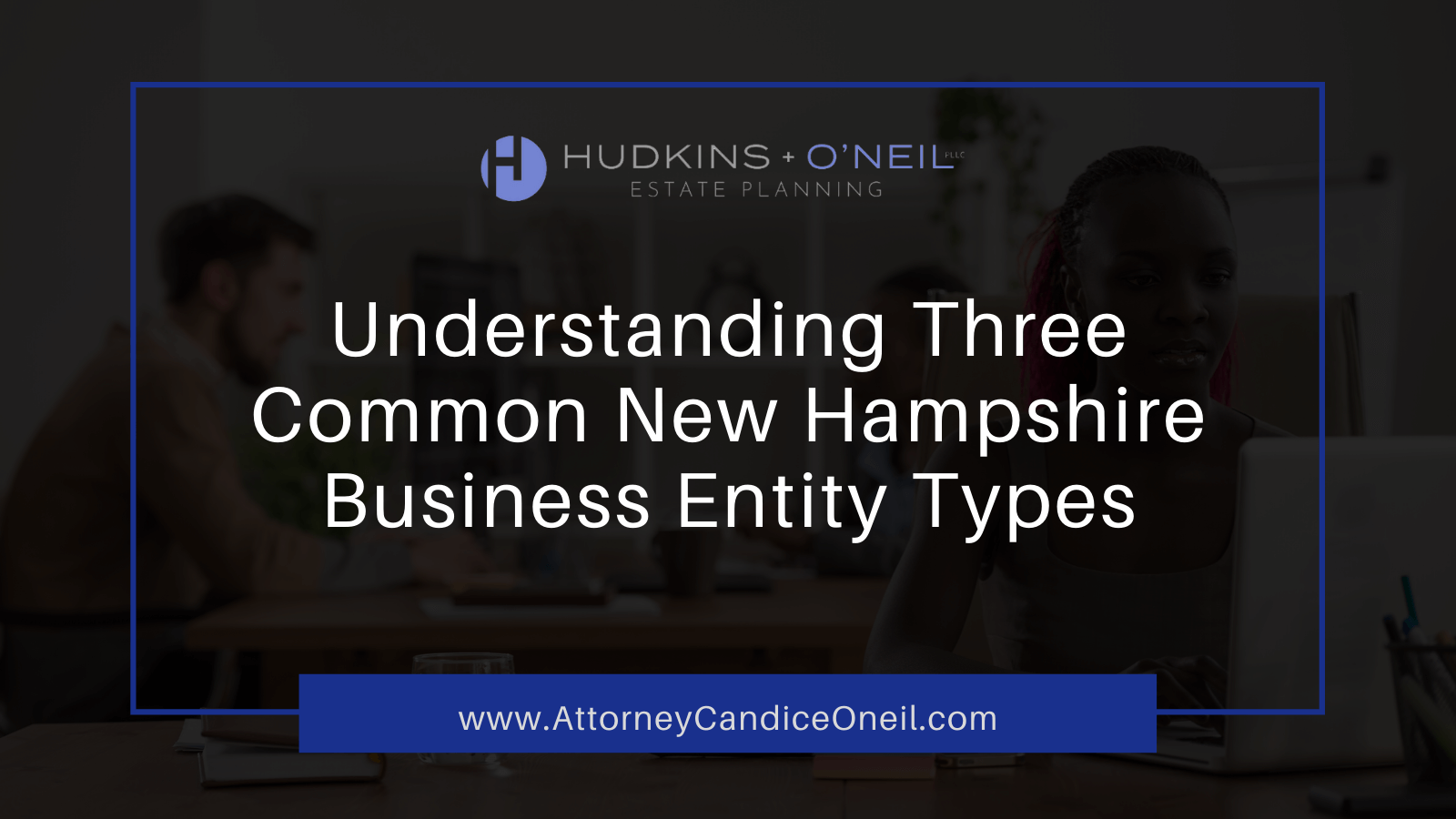Understanding 3 Common New Hampshire Business Entity Types

When forming a new business, you need to choose the type of entity that best suits your needs.
- LLC’s
- S-Corporations
- Sole Proprietorships
An Overview of LLC’s, S-Corporations, and Sole Proprietorships in New Hampshire
If you are a small business owner in New Hampshire, you may be wondering whether you are using the proper business entity. The choices can seem overwhelming and confusing for those new to this area of the law. Since the choice of entity is very important when it comes to tax obligations and liability protection, the guidance of an experienced New Hampshire business attorney is helpful to ensure you choose the right entity for your needs.
What is a sole proprietorship?
A sole proprietorship is a form of business ownership and operation that does not separate the business owner from the business as an entity. The owner of the business is personally responsible for the debts of the company. If the sole proprietorship operates under a name that is different from the legal name of the business owner, the name is registered as a trade name with the New Hampshire Secretary of State’s Office.
What is a limited liability company?
A limited liability company is a business entity that allows for flexibility with regard to taxation and limits personal liability of the members. It is in many ways a combination of the features of a partnership or sole proprietorship and that of a corporation. LLC’s enjoy the pass-through tax benefits of the partnership or sole proprietorship and the liability protection of the corporation. Owners of an LLC are called “members” and their ownership interests and operating rules are defined in the entity’s operating agreement.
What is an s-corporation?
An s-corporation is a c-corporation that filed for subchapter-s corporation status. Essentially, this means that an s-corporation is a type of corporation that chose special tax treatment in order to obtain similar tax benefits of those of an LLC, partnership, or sole proprietorship. Income, losses, deductions, and credits are passed through to the shareholders. S-corporations must follow numerous corporate formalities such as maintaining corporate minute books and holding annual meetings. There are also several restrictions imposed on the corporation in order to maintain its eligibility to qualify for s-corporation status.
LLC’s, S-Corporations, and Sole Proprietorships are just three of the many variations of business entities that may be available to you as a business owner. The decision as to which entity is right for your needs should not be taken lightly. We are here to help you navigate these choices. We encourage you to contact us today by emailing Attorney Candice O’Neil at Candice@hudkinslaw.com to learn more.
